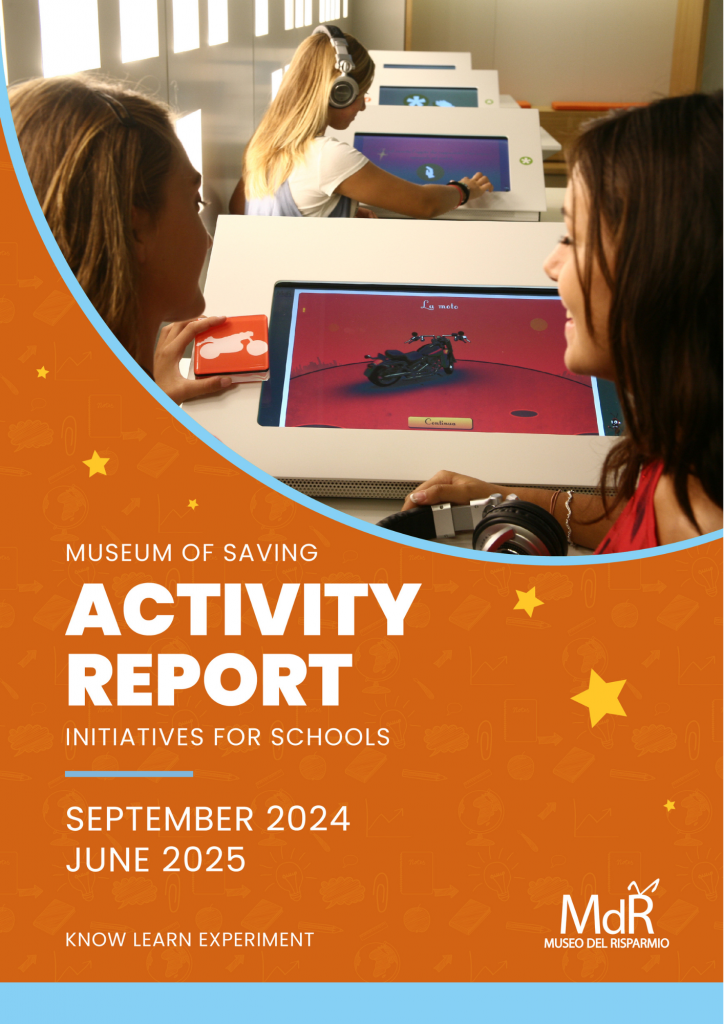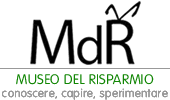
In an increasingly complex global economic context, characterized by uncertainty and rapid, disruptive technological progress, financial education represents a valuable tool for developing those transversal skills that help people think critically, make informed decisions, and protect themselves from mistakes or manipulation.
The recent Guidelines for the teaching of civic education (2024), of which financial education now forms an integral part, reaffirm the central role of the school—together with the family and other local institutions—in accompanying students along the path that leads them to become responsible, autonomous, aware, and engaged citizens in a constantly changing society.
Starting from this vision, the Museum of Saving has chosen to propose initiatives and- programs that go beyond the mere transmission of knowledge, aiming instead to stimulate a cultural and personal change.
Through our educational paths, workshops, and outreach events, we train children and young people to evaluate risks and opportunities, think in terms of time horizons, cultivate perseverance in pursuing goals, manage time and information effectively, and translate ideas and desires into concrete actions.
Our teaching methodology is active and inclusive, using diverse tools and languages: for younger children we use games and storytelling, while for older students we offer role-playing, simulations, and practical cases that help them plan goals and economic choices. The playful and emotional dimension is central to our programs: play facilitates learning by turning abstract concepts into meaningful experiences.
In the school year from September 2024 to June 2025, the educational activities of the Museum of Saving, delivered online, in hybrid format, and in person, reached a total of 117,000 students and teachers from primary, middle, and high schools throughout Italy.
The classes were engaged through the delivery of over 1,500 educational sessions (online financial education programs, workshops, thematic guided tours, in-depth events), totaling more than 2,100 hours of training.
For primary and middle school students, the EDU FIN&FUN program was introduced — a workshop-based pathway in economic citizenship education, consisting of three sessions led by a Museum of Saving tutor, involving 217 classes and over 4,400 students across Italy.
Additionally, a total of 43 educational events for students and teachers were held, attracting over 84,000 attendees and 1,000 views on the Museum’s YouTube channel. Using formats geared towards edutainment and cross-disciplinary collaboration, the events addressed the basic concepts of financial education, as well as cyber and digital security, artificial intelligence and cryptocurrencies, human capital, and the circular economy.
The Museum’s educational formats have also been successfully implemented beyond Italy’s borders: thanks to the commitment of FLITIN – FINANCIAL LITERACY INTERNATIONAL NETWORK, over 12,300 students abroad were involved.
Read the ACTIVITY REPORT to discover in detail all the initiatives dedicated to schools in the 2024-25 school year.
